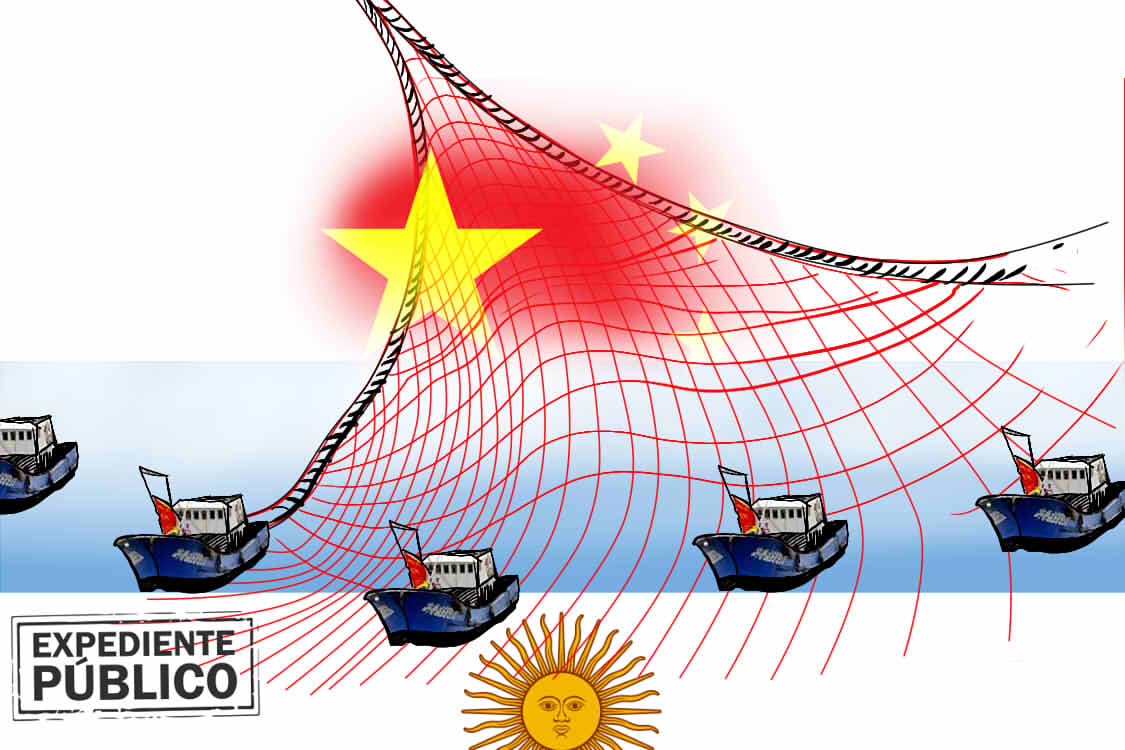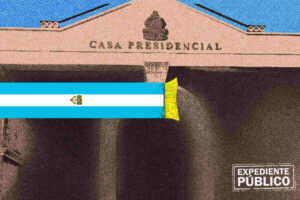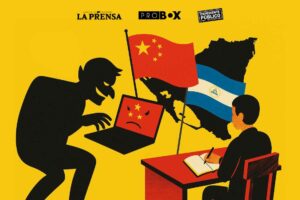*As in the rest of Latin America, Chinese businesses in Argentina lack transparency and have many close relationships with political sectors.
**The Argentinian government’s responses to Chinese fishing fleets plundering its ocean territory have been weak and irresolute.
Expediente Público
The economic and political influence of the People’s Republic of China in Argentina has penetrated infrastructure and technology projects managed by the central government, but also provincial government projects, according to Ricardo Ferrer Picado, an Argentinian specialist in strategic analysis.
He was a participant in a forum on Chinese influence and interests held in Washington DC and coordinated by the International Republican Institute’s Center for Global Impact.
As with other countries, lack of transparency is also frequently a feature of China’s contracts and agreements with Argentina. Ferrer Picado, who is also a researcher at the Center for a Secure Free Society and a member of the Instituto de Estudios Estratégicos de Seguridad, points out how voraciously Chinese fleets are fishing Argentinian territorial waters, with local authorities doing little to curb them.
The Chinese base
Ferrer Picado cites the case of the Espacio Lejano Station, a tracking station installed in Argentinian Patagonia by the Chinese Space Administration, under a 50-year concession. It was criticized as a ”handover of sovereignty” and its military use and secret clauses were denounced.
“When the Chinese space base was planned in in the town of Bajada del Agrio in Patagonia, despite it being a matter that compromised sovereignty and required authorization from the Argentinian Congress, the president at the time, Cristina Fernández de Kirchner (2007–2015), issued a presidential decree to cede the property that is now under the domain of the Chinese military,” Picado recalled.
Eventually, in 2015, Congress passed the Land Transfer Act, in force for 50 years and automatically renewable, which gives China possession for at least 100 years.
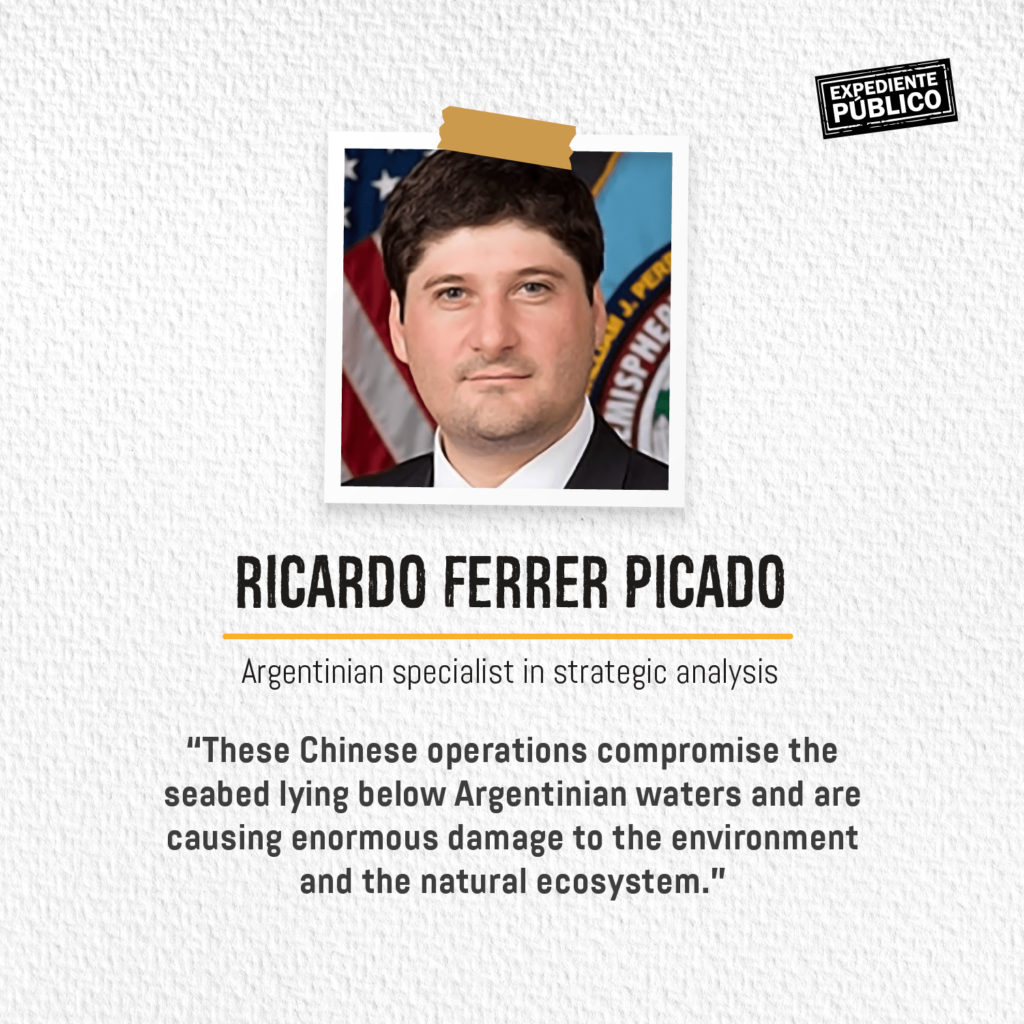
Electroingeniería SA was the company in charge of constructing the base. It was owned by Gerardo Ferreyra, who had gone from being a shareholder to taking control of the construction company some years earlier, during Néstor Kirchner’s presidential term (2003–2007). Ferreyra was a close collaborator of Kirchner and is one of the people closest to the current vice president, Cristina Fernández. He was also an important figure in the People’s Revolutionary Army (ERP), a Marxist-oriented Argentinian guerrilla group that was disbanded in 1977.
According to Argentinian media, a key player in Ferreyra’s closeness to the Kirchners is Carlos Zannini. They would have met in Ferreyra’s youth, when Zannini was a member of the Maoist-leaning Communist Vanguard.
The Argentinian website PERFIL claims that the two men would have been held in the same prison in the 1970s and that “that friendship served him (Ferreyra) as a springboard to take over the tenders and diversify businesses in the K [Kirchner] era.”
Zannini held various important positions in the Néstor Kirchner and Cristina Fernández administrations. In the 2015 presidential elections, he was a candidate for vice president, and is currently attorney-general of the National Treasury.
According to Ferrer Picado, the Chinese space base would be intended to track satellite launches and support the Chinese deep space program, but even Argentina does not know precisely what it does, since the agreement is secret.
The base is said “by specialists [to be] a vector of an anti-missile shield. At the end of the day, these are secret operations, because Argentina has ceded sovereignty,” Ferrer Picado said.
And so, long before the Silk Road was formulated, Argentina was hosting a Chinese deep space ground station, which has been described as a “black box,” in Neuquén province.
Political financing
Ferrer Picado also warned of Chinese political financing, how it penetrates to the provincial level, and cultivates both the ruling party and the opposition.
“Another of the ways in which Argentinian politics can be interfered with is by financing. Of course, when bids are won without any type of control, not only do the projects take a long time or not even get completed, but they do not fulfill their function, as is the case of the Néstor Kirchner–Cepernic dam project. The company has associated itself with the Chinese.”
By this, Ferrer Picado is referring to the united effort between the Argentinian companies, Hidrocuyo SA and the aforementioned Electroingeniería, and the Chinese firm Gezhouba, which will build two hydroelectric plants in the province of Santa Cruz with an investment from China of more than 4 billion dollars.
“We also have the case of current investments in rail infrastructure, where they have obtained the trains, which historically are the routes that connect the ports with the farm producers.”
Additionally, China’s global and Antarctic naval presence has attracted the attention of those engaged in geopolitical competition in recent years. There has been talk of Chinese financing of Argentina’s polar logistics facility in the Beagle Channel, which can operate as a gateway to Antarctica and is close to the Strait of Magellan and the Drake Passage, strategic bottlenecks for maritime traffic.
Chinese fisheries
Ferrer Picado stressed that another challenge posed by China is related to its illegal fishing fleets within or at the edge of Argentinian waters.
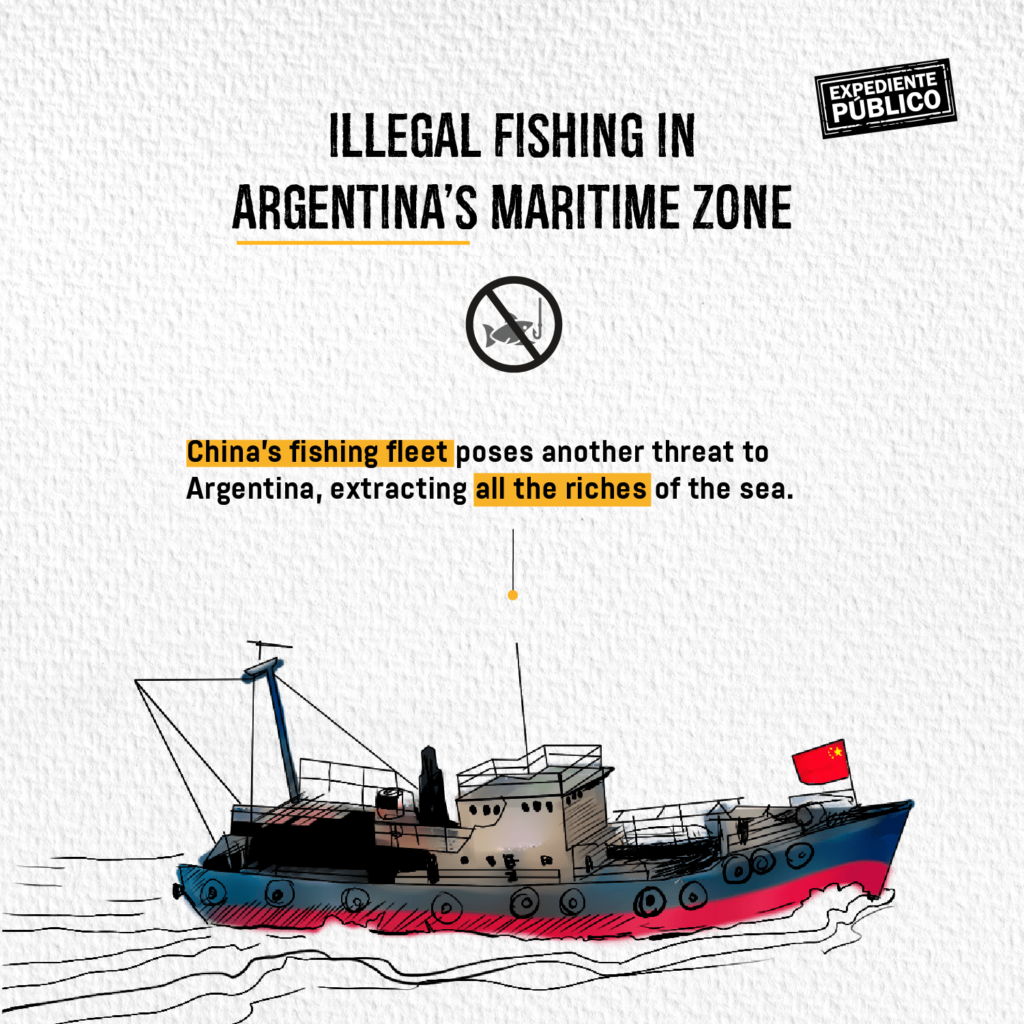
“The Chinese fishing boats extract all the wealth, without any type of oversight. The Argentinian Navy’s and Security Forces’ responses have been basically weak. However, these Chinese operations compromise the seabed lying underneath Argentinianan waters and are causing enormous damage to the environment and the natural ecosystem, not only in Argentina but throughout the southern hemisphere,” he noted.
He explained that the first warning about “the Chinese fishing fleet scandal” came during a visit by members of the United States Department of State and Department of Defense.
“Argentina is not the only Latin American country that has spoken out about this issue. There have been similar complaints from Chile, Peru and Ecuador, but their rejoinders to those incursions have been more firm than the Argentinian responses.”
The history of Hidrovía
The Hidrovía Paraguay–Paraná Waterway is a river route more than 1,500 kilometers long that flows into the La Plata River. It carries over 70 percent of Argentinian exports, as well as a good part of Bolivia’s, Brazil’s, Uruguay’s and Paraguay’s exports. From the mouth of the Hidrovía, ships sail to markets in Europe, China and the Asian Pacific.

The same route is also used for smuggling, drug trafficking and underground trade in soybeans, moving some 20 to 40 billion dollars of contraband merchandise, so control of the waterway is vital both for Argentina’s economy and its national security.
According to Ferrer Picado, the attempts to grant a concession for the Hidrovía to Chinese businessmen comprise another of the major issues that complicate and obscure Argentina’s relations with China.
The Aberto Fernández government unilaterally denied any possibility of renewing the concession to the Belgian–Dutch company Jan de Nul, which had been providing outsourced services for 25 years together with its Argentinian partners (Emepa). The concession expired on April 30, 2021.
Ferrer Picado stated that the objective had been “to give the concession to a Chinese company, but which eventually did not manage to obtain it due to the political situation in effect, and due to monitoring and finger-pointing by the media. However, I agree with many others who say that it was only a ‘standby,’ a ‘let’s hope’.”
On July 1, 2021, the government published the nationalization decree for the project, valid for one year. As a next step, on May 13, 2022, the “National Authority for Control and Management of the Paraná–Paraguay Hidrovía” was launched. The agency is responsible for advancing the tender.
Ferrer stated that shipments of cocaine have left the country via the Hidrovía that were later intercepted in ports such as Rotterdam (Netherlands), Tel Aviv (Israel) and Spain, “where it truly is a scandal,” since little control of security was evident, something which is perceived as a “deliberate” strategy in a bid to attempt to fix the “problem.”
“And no doubt the company that is ready to step in is going to be one of those same Chinese companies that are sniffing around so many Argentinian officials these days,” says Ferrer Picado.
He points out that these Chinese companies “do not go through the embassy, but have free movement and access to circulate with impunity through the federal government, through provincial governments, various economic groups and local governments.”
For Ferrer Picado, this closeness to China provides provincial governments with “a lot of financial resources but with medium-quality products that do not last long” and for which they must spend significant amounts of money, but politicians who need immediate results lap them up in any case.
Hidrovía generates more than 300 million dollars a year and seems to be promoted by the vice president – and former president – Cristina Fernández de Kirchner, according to Argentinian media reports.

